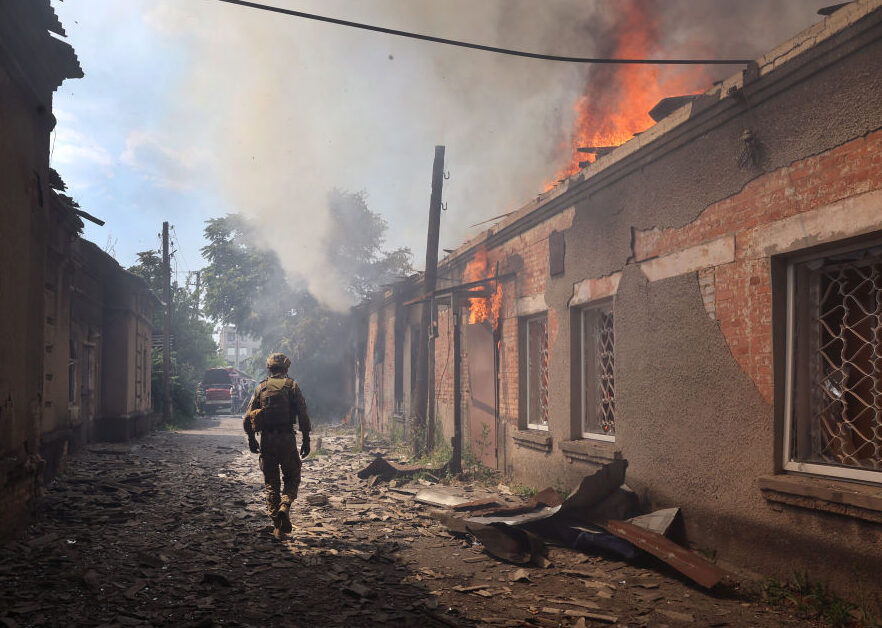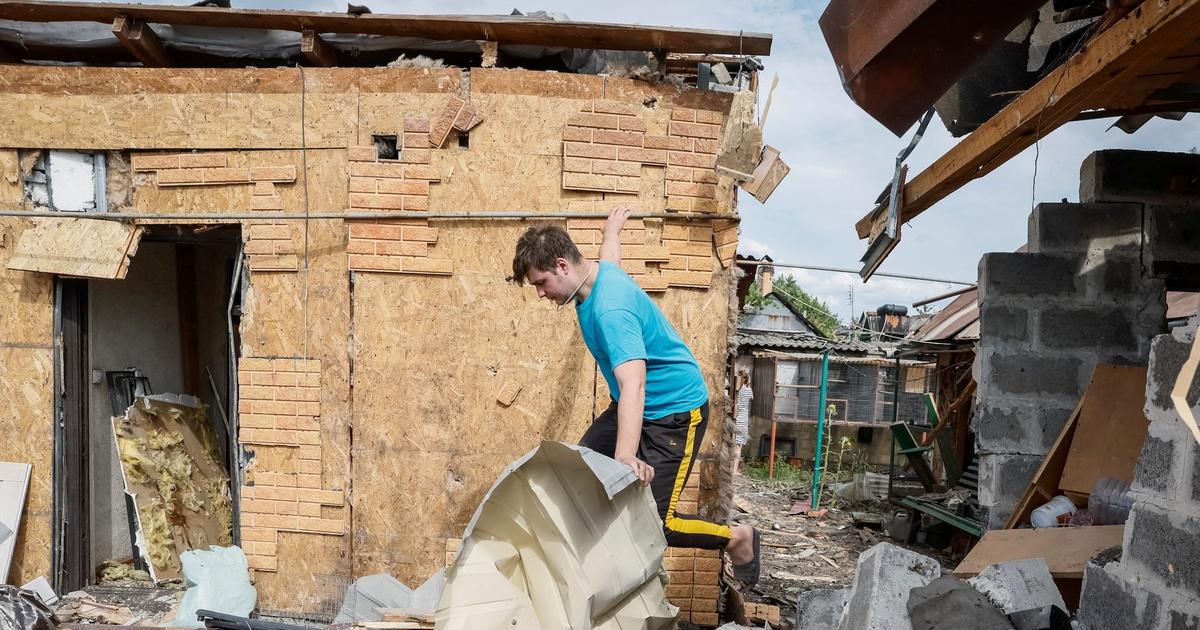How will the Ukraine war end?

But even Ukraine’s preconditions for peace talks are not helpful, as they demand concessions that Russia is not compelled to make, in pursuit of an ultimate goal that Ukraine is unlikely to achieve. The Geneva summit, from which Russia was excluded, is likely to be the last such initiative before serious negotiations begin, as the patience of the non-aligned states has already run out. economist As he notes, “a discussion is already underway about what might be an acceptable end to the war for the United States,” while “the focus is already on alternative negotiating platforms that may begin as early as late fall.”
Much can happen between now and the fall, and that is precisely why peace talks are unlikely by then. Russia could achieve greater battlefield success this summer, forcing Kyiv to accept terms it would currently refuse to accept. But equally, Ukraine could further slow the Russian advance, pushing the war back into a slow, agonizing stalemate where serious negotiations might again seem attractive to Putin. To achieve the latter outcome, Western policy choices—i.e., continuing to arm Ukraine and providing strong diplomatic support—would not differ measurably from the currently stated strategy of supporting Ukraine until Russia’s total defeat. In this sense, the West’s public commitment to maximalist and likely unattainable policy goals can be understood as a negotiating tactic to improve Ukraine’s position before a renewed push for meaningful talks: whether they are thereby deceiving Putin is another question.
“The West’s public commitment to maximalist and probably unattainable political goals can be understood as a negotiating tactic.”
In any case, the other possible event of the fall, a Trump election victory, is perhaps the decisive factor that makes negotiations before the end of the year unlikely. Trump’s attitude toward Ukraine is difficult to discern: while he has spoken negatively about Zelensky personally, and his most committed faction within American politics is staunchly hostile to Ukraine, he is a fickle figure who may opt for war escalation as a dramatic prelude to talks. The final Ukraine policy of a future Trump administration is such a potentially transformative but not yet predictable entity that it is entirely logical for Putin to delay war until the new American president takes office: until then, there is currently no meaningful space for negotiations, and if, as is likely, a peace deal entails the painful ceding of Ukrainian territory, the political logic for the Biden administration will be to shift the responsibility and the press outrage that an unsatisfactory conclusion will bring onto Trump.
Nevertheless, it may be possible to see the future outlines of an agreement. Last summer, it emerged that the eminent American foreign policy expert Richard Haass had been involved in secret talks with Kremlin officials, for which he was promptly denounced by Kiev and distanced from the White House. Haass’ conclusion, published in Foreign Affairs the same month he met Russian officials was that “the West has allowed Ukraine to define success and set the West’s war aims. That policy, regardless of whether it made sense at the beginning of the war, has now exhausted itself.” Haass’s then-controversial analysis that “peace in Ukraine cannot be held hostage to war aims that, however morally justified, are likely to be unattainable” has stood the test of time well over the past year, as military trends have shifted in Russia’s favor and political trends in both the United States and Europe have moved away from the firm and limitless commitment to war that Western leaders expressed at the war’s outset.
Haass’s proposal – presumably aimed at Russia – was to freeze the war on the current front line, and “ideally both Ukraine and Russia should withdraw their troops and heavy weapons from the new line of contact, effectively creating a demilitarized zone” monitored by neutral observers. Russia would hold onto its military gains, although Kyiv would not be forced to recognize their legitimacy. “Instead, one must accept that restoring territorial integrity must wait for a diplomatic breakthrough,” perhaps only after Putin leaves the political stage. Until then, “Western governments could promise to completely lift sanctions on Russia and normalize relations with it, but only if Moscow signs a peace deal acceptable to Kyiv.” Accommodating Russian demands for Ukrainian neutrality – that is, a commitment not to join NATO – would be balanced by a firm bilateral U.S. commitment to defend Ukraine. It is therefore noteworthy that, as time is running out on the West’s current strategy, the Biden administration signed a 10-year bilateral security agreement last week outside NATO structures: the Haass strategy may already be in motion.
Even if the war continues inconclusively, the remaining months of this year will likely see both sides attempting to consolidate their battlefield positions before attempting a new diplomatic push for peace. If Trump wins the election and, as seems likely, seeks to pressure Ukraine to cede land for peace, European politicians will face difficult choices. A full Europeanization of the Western war effort will require a far greater mobilization of resources than European politicians have so far shown themselves capable or willing to provide, despite all the rhetoric, while the discrepancy between Kyiv’s maximalist war aims and battlefield reality will only grow more stark. Would Starmer involve Britain in the Ukraine war without American support? That is certainly a question worth asking. Bringing this threatening situation to an acceptable end will require an open and serious debate about what an acceptable conclusion to the war might look like, short of a complete Russian collapse.



